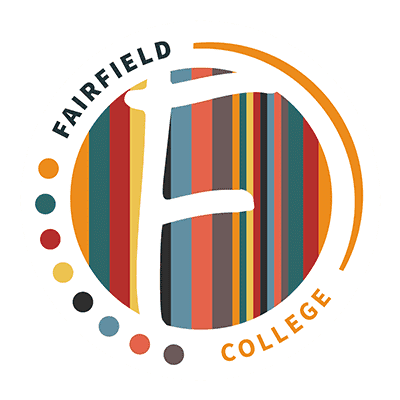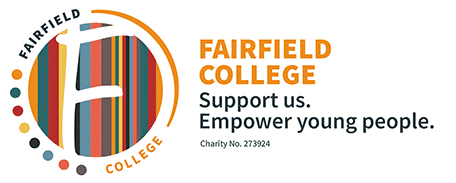Resources for Parents

Support for Parents and Families
Online Safety – Social Media – Technology
New technologies have become integral to the lives of young people in today’s society, both within colleges and in their lives outside college.
The internet and other digital and information technologies are powerful tools, which open up new opportunities for everyone. Electronic communication helps teachers and learners learn from each other. These technologies can stimulate discussion, promote creativity and increase awareness of context to promote effective learning. Young people should have an entitlement to safe internet access at all times. The use of these exciting and innovative tools in college and at home has been shown to raise educational standards and promote progress..
However, the use of these new technologies can put young people at risk within and outside the college. As part of our college offer, we have a wide range of support, training and education that helps to keep our young people safe. The boundaries between college/home are often unclear when it comes to technology as the majority of issues occur outside of college but then become an issue within college. This means that a joined up response is the most powerful. Decisions regarding whether a young person has a mobile phone or tablet, are not made by the college, these remain the complete responsibility of parents and families.
At Fairfield College we take online safety very seriously, in demonstrating our commitment to keeping young people, staff, trustees and visitors safe we take the following measures:
- Induction Programme of how to stay safe online.
- User Acceptable Usage form / contract for all Staff and Students (student friendly version).
- Information regarding safer use of the Internet.
- Support to prepare young people for the risks and dangers of social media.
- Strategies from a talk therapist / Tutor to understand how to use the internet safely.
- A highly trained Child Exploitation and Online Protection (CEOP) Ambassador.
- Liaison with PCSO / Police Officers to support young people with online safety.
- Specialist staff training and regular updates- Cyber Security, Online Safety and PREVENT.
- Multiple Firewalls- Using Smoothwall, which allows us to mange by keyword, theme or specific sites and to apply differentiated access dependent on skills/role.
- Tailored Web Filtering for key terms and phrases.
- The ability to block or suspend internet access
- Use BitDefender and Barracuda as an external layer of support for blocking known malicious hosts and websites.
- User accounts with targeted permissions.
- All Wi-Fi is password protected (WPA-Personal) with the additional use Captive Portals for visitors / guests.
We aim to do all we can to support young people with their use of technology, but this is greatly improved when parents and families work alongside us. Please do not give your child an internet enabled devices if you are concerned about how they might use them or the ways they might interact with others. The college takes its responsibility to safeguard its staff and students very seriously. Young people will use technology on the way to and from college, on public transport, and unsupervised time such as after college. Many devices can operate on mobile networks over which the college has no control. It is the responsibility of parents and families in these situations.
If you have doubts, then do not provide your child with technology
The following websites may be useful to help you decide whether your child is ready for access to technology and also what you can do to keep them safe.
CEOP- This website provides a reporting form for anyone who believes that a child or young person is at risk:www.ceop.police.uk/safety-centre
THINKUKNOW – is the education programme from NCA-CEOP, a UK organisation which protects children both online and offline they offer a selection of age-related resources for keeping young people safe online: www.thinkuknow.co.uk
Parent Zone – The experts in digital family life! They provide support and information to parents, children and schools, working globally to help families to navigate the internet safely and confidently. They help understand and address the impact of emerging technologies on young people. https://parentzone.org.uk/
Autism and the Internet Safety Resources from MENCAP: https://www.mencap.org.uk/sites/default/files/2016-11/Internet-Safety-web-2016.pdf
The NSPCC has a range of resources for families and young people: https://www.mencap.org.uk/sites/default/files/2016-11/Internet-Safety-web-2016.pdf
The UK Safer Internet Centre: https://www.saferinternet.org.uk/advice-centre/young-people/resources-11-19s
A practical toolkit from Childnet International: https://www.childnet.com/
FACT: https://www.fact-uk.org.uk/consumer-advice/internet-safety/
CBBC: https://www.bbc.co.uk/cbbc/findoutmore/help-me-out-staying-safe-online
South West Grid for Learning: https://swgfl.org.uk/online-safety/
Additional General Information
Care Reviews Explained (click here)
Community Connecting Travel Training Referral for Services (click here)
Employment and Community Skills Travel Training (click here)
Guide to Adult Care Assessments (click here)
Learning Disability and Autism Service Explained (click here)
National Eligibility Criteria and Assessment Under the Care Act 2014 (click here)
Personal Budgets Information (click here)
The Community Connecting Team (click here)
Wiltshire Employment Support Team (click here)
Useful Links
Supporting Organisations and Guidance
- Anti-Bullying Alliance: www.anti-bullyingalliance.org.uk
- Beat Bullying: www.beatbullying.org
- Childline: www.childline.org.uk
- DofE: Supporting children and young people who are bullied: advice for schools
- DofE: https://www.gov.uk/government/publications/preventing-and-tackling-bullying
- DofE: No health without mental health https://www.gov.uk/government/publications/no-health- without-mental-health-a-cross-government-outcomes-strategy
- Family Lives: www.familylives.org.uk
- Kidscape: www.kidscape.org.uk
- MindEd: www.minded.org.uk
- NSPCC: www.nspcc.org.uk
- PSHE Association: www.pshe-association.org.uk
- Restorative Justice Council: www.restorativejustice.org.uk
- The Diana Award: www.diana-award.org.uk
- Victim Support: www.victimsupport.org.uk
- Young Minds: www.youngminds.org.uk
- Young Carers: www.youngcarers.net
Cyberbullying
- Childnet International: www.childnet.com
- Digizen: www.digizen.org
- Internet Watch Foundation: www.iwf.org.uk
- Think U Know: www.thinkuknow.co.uk
- UK Safer Internet Centre: www.saferinternet.org.uk
LGBT
- EACH: www.eachaction.org.uk
- Pace: www.pacehealth.org.uk
- Schools Out: www.schools-out.org.uk
- Stonewall: www.stonewall.org.uk
SEND
- Changing Faces: www.changingfaces.org.uk
- Mencap: www.mencap.org.uk
- DofE: SEND code of practice: https://www.gov.uk/government/publications/send-code- of-practice-0-to-25
Racism and Hate
- Anne Frank Trust: www.annefrank.org.uk
- Kick it Out: www.kickitout.org
- Report it: www.report-it.org.uk
- Stop Hate: www.stophateuk.org
- Show Racism the Red Card: www.srtrc.org/educational
-
